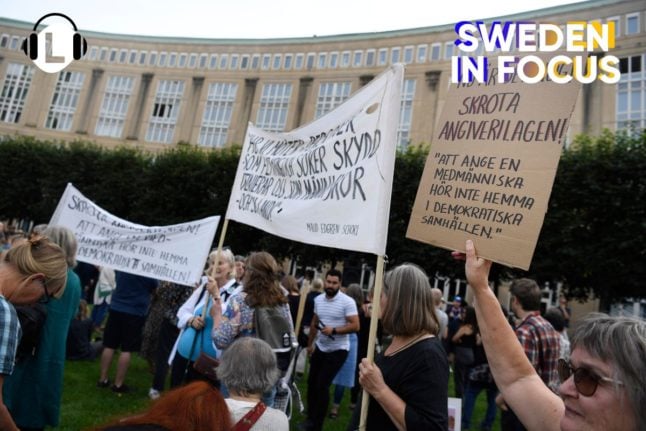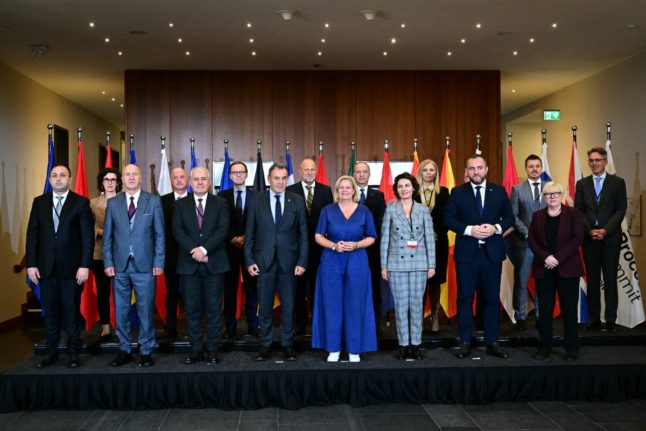Host Paul O’Mahony is joined this week by The Local Sweden’s Becky Waterton and Emma Löfgren.
After Sweden’s parliament reopened last week after the summer break, the panelists discuss what Prime Minister Ulf Kristersson said would be the government’s priorities for the year ahead.
Two years into the government’s term, how is its much-vaunted ‘paradigm shift’ on migration progressing?
And finally we examine some potential stumbling blocks for the right-wing coalition as it enters the second half of its four-year term, from a proposed begging ban to plans to deport people for flawed conduct – ‘bristande vandel ‘.
Sweden in Focus Extra is a podcast for The Local’s Membership+ subscribers. Follow the links at the bottom of this page to get full access.
Get Membership+ to listen to all The Local’s podcasts
Sign up for Membership+ now and get early, ad-free access to a full-length episode of the Sweden in Focus podcast every weekend, as well as Sweden in Focus Extra every Wednesday.
Please visit the link that applies to you and get a 40% discount on Membership+
- For signed-in members: Upgrade to Membership+
- For new members: Get Membership+
Read more about Membership+ in our help centre.
Already have Membership+ but not receiving all the episodes? Go to the podcast tab on your account page to activate your subscription.



 Please whitelist us to continue reading.
Please whitelist us to continue reading.
Member comments